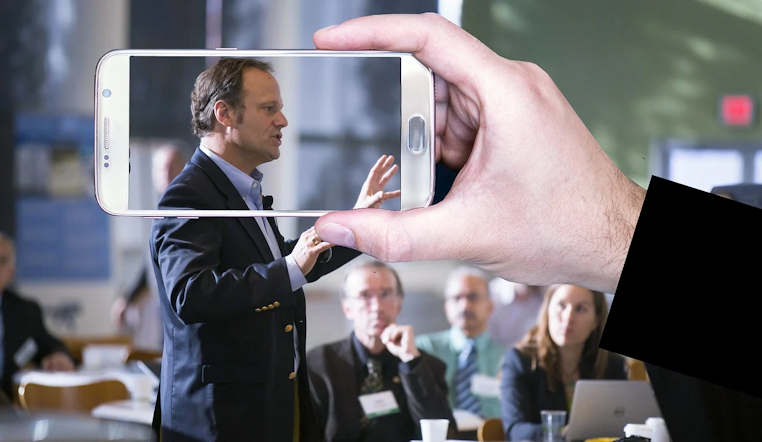Effective communications in the workplace can save your business from financial disaster.
Yeah, it’s a bold statement – but it is true.
Before I turn the dogs loose on you with all this information, I want you to know I’m going to keep it simple. So, if you already know everything about effective communications in the workplace…See ya later!
(The 99.9999% of us that do not know everything about this subject will be hanging around.)
The fact of the matter is, we can all learn more about communicating effectively in the workplace. So, I’m going to unpack and rehash some stuff you have heard before but probably forgot. It never hurts to go back over the basics when it can help you make mountains of money.
So, let’s get right into it, shall we?

Why You Need to Learn Effective Communications in the Workplace
What we are talking about here are internal communications. You know, speaking with people within your organization.
In a survey by the Gallup Organization, a reported $450 billion are lost annually by companies in the U.S. because they feel disengaged at work.
Here is how money vanishes because of poor communication at your business:
- Wages are lost because employees will not work as hard if they feel they are on their own.
- Workers don’t feel any allegiance with their employers so, they won’t do their best.
- Retention is lower, and trained personnel will take acquired assets gained from your company to competitors.
- Costly mistakes are made and have to be cured with more money.
- Distrust in the organization will have employees at all levels looking over their shoulders.
- Rumors of downsizing, unfair promotions, and other nefarious activities can destroy your company’s morale.
It has been studied and documented by companies like RisePeople that engaged employees bring in 21% more profit than bored ones do.
Also, Inc. reported that productivity increases by 25% when workers feel they are more connected to their employers.
It doesn’t take a rocket scientist to see that effective communications in the workplace are crucial to making money in your business.
Now that we know what the problem is, let’s see how to make this pay off for you and your company.

Listening: The Fastest Step to Fixing Your Internal Communications Problems
Has this ever happened to you?
Recently, I had a friend tell me about a TV show that he loved to watch. He was so hyper about it that he launched into a blow-by-blow description of one of the episodes.
(It got a little creepy when he talked about the characters like he knew them. But that’s just me…)
I have to hand it to myself; I was a good boy for once. I practiced my listening skills as he blathered on for what felt like 30 minutes or so. Now that I think about it, I believe it was almost 40 minutes. But hey, what’s a mere half an hour or so between friends, right?
I was attentive to him and asked meager questions about the different characters. But near the end, I felt like grabbing a nearby butter knife and committing hari-kari.
Finally, I got the opportunity to speak.
I started to tell him about a show that I had seen similar to his so we could relate. (Plus, I thought it would give his mouth a rest.)
I got three words into my epic when he got up from his chair and started adjusting something hanging on the wall. He proclaimed that he didn’t understand why it was a little crooked, ignoring my review.
After that, he started complaining about how cars would not stop at one of the neighborhood stop signs.
I felt like a leper with a bell around my neck. First, he cut me off and ignored anything I had to say.
He was a close friend of mine, but my frustration level reached a fever pitch, and I finally threw up my hands and said, “Hey, listen!” After that, he finally let me get in my 2 cents worth. But I felt frustrated, ignored, and insignificant.
(I’ve known this person for a long time, so I was willing to make concessions.
But if it were anyone else, I’d have walked.)

This Action is More Important Than What You Say
Listening is a vital part of effective communications in the workplace.
And by the way, not listening to people can wreck your personal life as well.
Your husband, wife, or friends are not going to appreciate it when your mind is off in a faraway place. You can lose relationships, romance, the whole enchilada.
You may not notice that you’re doing this, so at least I hope I’m making you aware.
So, How do we fix this problem?
Here are several tips on how you can become a good listener and thus a better communicator.
Concentrate on the Speaker
When someone is talking to you, you need to give them your undivided attention; the best way to do that is to look at them in the eyes.
There is an old saying that the eyes are the window to the soul. A deep communication occurs when your eyes are fixed on the eyes of the person you are talking to.
This is especially important when they are talking to you. There can be no question that you are concerned with what they are trying to say to you when your eyes meet theirs.
Challenge Your Mind as They Speak
When someone talks to you, see if you can remember what they just said. Repeat key points in your mind. This takes practice, but once you learn how to do it, you’ll be able to respond to them better.
Repeat Their Points Aloud
In a business conversation, you may want to repeat back points your speaker said to you.
You can use a phrase like, “What I hear you saying is…” and then tell them what you remember. This strategy may seem like it is stupid, but your coworker will appreciate it if you repeat back to them what they said.
This action is validating the fact that you are paying attention to what they are saying.
A Nod is as Good as a Wink
Non-verbal gestures are also a part of effective communications in the workplace.
A way to confirm that you understand what someone is saying to you is by nodding. As you’re listening to the individual speaking, nod so that you don’t interrupt. This action shows that you understand what you’re hearing without interfering with the message.
Once again, you’ll want to maintain eye contact as you are listening.
Now and then, you can say words like “right” or “I understand.”
Since many of us are doing online sessions due to Covid-19, it’s wise to use the laptop camera to it’s fullest potential. Whenever I have a conference with a client or student, I also lean forward in my seat and focus on their faces, so they know that they have my fullest attention.
This method is also for face to face discussions. When you’re in an office with an internal communications situation, you want to do the same thing. If you are sitting in a chair, place your hands on the armrests. You can also put them on your legs if armrests are not available.
Don’t fold your hands or cross your arms. (Yeah, crossing your arms is body language that you are resistant to what they are saying.)
Questions are Confirmations
Another way to have effective communications in the workplace is by asking questions. When listening, ask for clarification, more information, and ideas.
Nothing says “I’m listening” better than a few well-placed questions.
Even if you do not have any questions to ask, try to think of something. Using this tactic will show that you are thinking about what coworkers and friends are saying.
Be Patient
Try Not to interrupt.
Part of listening is the patience to wait before you jump in with your views or information. Even when you have the answer or are in a heated exchange, you need to slow down and let your speaker finish.
If you are talking to a long-winded person, you can eventually raise your hand to get attention so you can say something. Doing so is asking politely to speak and shows you care enough to be kind.
Bear in mind that many times the person you are talking to needs to be heard. Whether it is because they are upset or excited, allowing them to do so will make you a winner in the long run.

Now, It is Your Turn to Speak
Up to this point, friends, I have been pontificating on how you should listen.
I hope you learned a lot – if not, please go back and read the information above again.
Here are some tips on how to improve your internal communication skills.
You Need Some Face -Time
I know we are living in a covid-19, tech-world where face to face time is getting rare. However, in a survey by Hubspot, 95% of professionals say that communication in person is essential for long term business.
If you’re riding the fence on this, think about the stores, people, and personalities you return to regularly.
These are almost always people and businesses that you already know.
And now is the time to capitalize on this strategy more than ever.
Why?
If Covid-19 is not bad enough, electronic communication by email, cellphones, social media, etc., have made life very impersonal.
The average person hates getting artificial-intelligence driven messages thrown at them. Human beings have been meeting in person since time began. it is unlikely that will change anytime soon.
So if you are in business, now is the time to get as much person to person contact as possible. Even if you have to do Zoom or Skype calls, just letting people see your face will put you far ahead of the competition.
Miscommunication Sucks…The Life Out of Internal Communications
Not only are electronic communications impersonal, but they can be misinterpreted.
One of the great things about meeting in person is that you are visible. Someone who reads your email cannot see if you are happy, sad, or mad. When you are meeting in person, your gestures and body language speak volumes.
If you have to say something important and you can’t meet up, a call will make your message clearer. At least your recipient will be able to hear the tone of your voice.
Make Your Information Clear
Effective Workplace Communications need to be accurate and understandable. You can make your delivery perfect by planning what you’re going to say in advance.
Practicing is very important if you are going to be speaking to a large group of people.
If you use email messages, make sure you don’t compose them when you’re in a hurry. Nothing says, “I don’t give a flip” more than a poorly written email message.
(This is another reason why it is better to meet in person. At least, if you meet in person, you can look like you care and answer questions.)

The Verbal/Nonverbal Mix
I know I went over this in the section on listening, but it’s so important, it is worth repeating.
When you’re communicating with coworkers, you want to use a good mixture of verbal and nonverbal actions.
How do plan for this in advance?
You can practice and test your skills in front of a mirror. Look at the ways you are using your body while practicing short messages in a mirror. Watch your body movements, facial expressions, and posture while making your delivery.
You can also imagine what kind of reactions and responses your recipients will make while you are delivering.
What you want to experience during your practice sessions is awareness. You will want to be aware of the way you are using your words and body to express your points.
Watch yourself in a mirror and try to make a conscious effort to communicate emotions like excitement, joy, anger, confusion, and other ways you can make your messages clearer.
You should do this anytime you want to give a speech.

Watch Others and Mimic
If you have seen a good speaker, try to watch closely what they are doing. Right now, there are a lot of ways to watch videos online to see good speakers.
Pick a speaker you admire and watch how they use their facial expressions, body movements, voice inflections, and any other ideas you’d like to adopt.
One of the people I like to watch is the late, great Zig Ziglar. Zig was an excellent salesman who became a seminar personality. He would get paid big bucks to speak at motivational seminars and sales shows.
The reason why I like him so much is that he used a wide range of emotions and gestures as he spoke. He also practiced the crap out of his
speeches, and was usually heard reciting his material before going on stage to deliver.
So, find a communicator you really admire and try to mimic them. It will not only make you a better speaker, but it will also boost your confidence.
Final Steps to Effective Communications in the Workplace
OK, by now your brain should be full of ideas on how you can improve internal communications where you work. However, before you dance off into the sunset, I have a couple of assignments for you to complete.
(These are assignments from the school of life-long learning, which is a nice way of saying you’ll need to practice them for the rest of your business life.)
First, you need to practice these techniques on a regular basis. Professional communications skills need to be refined and exercised daily. Nothing will make your business life sing more than mastering this one skill.
Next, you’ll need as much experience at this as possible, I suggest that you join a local club or chapter, like Rotary or Kiwanis, and go to as many networking/speaking events as possible. You will meet all sorts of professionals and be able to network with them. This will also give you a lot of practice in communicating with people.
Another excellent way to get more speaking experience is by joining a local Toastmasters International. In case you’ve never heard of them, this organization is dedicated to teaching people how to speak publicly. For people who are afraid of public speaking, it’s an excellent way to overcome your fear of doing so.
The more you get in front of people and speak, the less fear you will have.
Finally, watch a lot of videos of public speakers. Here is a shortlist of people you can watch online to learn from:
- Reverend Billy Graham
- Reverend Martin Luther King
- Zig Ziglar
- Tony Robbins
- Accomplished Toastmasters Members
- Udemy – Currently there are about 2300 courses on effective communications in the workplace on this one site
Take Action Now for Better Internal Communication
Start learning and practicing. The best thing you can do is to take immediate action to better your communication skills.
There is no better time than right now to start.
If you have any suggestions on how you practice effective communications skills in the workplace, please leave a comment below now.
It would really make our day.






1 Comment
Zackary Bleything
Good site! I really love how it is easy on my eyes and the articles are well written. I’m wondering how I might be notified when a new post has been made. I have subscribed to your RSS which must do the trick! Have a nice day!